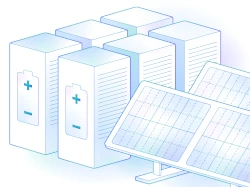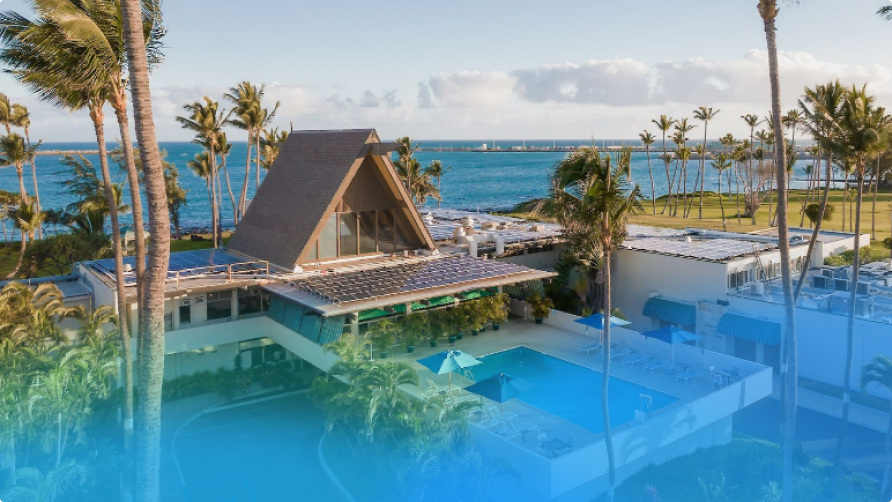The Challenge
Many hotels in Hawaii, among other commercial buildings, have installed rooftop solar photovoltaic (PV) systems to combat high electric rates and contribute toward the state’s renewable energy goal of 100% by 2045. The Maui Beach Hotel, an oceanfront facility built in 1968 with 147 guest rooms, has spent several years investing in property renovation and upgrade projects. One of the upgrade projects includes the installation of a 303 kilowatt (kW) solar array positioned near the hotel’s rooftop pool. In Hawaii, businesses generally install solar in order to reduce their electric utility expenses, which have the highest dollar-per-kilowatt-hour retail rates in the country. However, the value of solar is reduced significantly in Hawaii because of the island’s successor net energy metering (NEM) program, which attributes very little value to exported solar production. As a result, standalone solar applications in Hawaii either receive a big haircut on the value of solar produced or are forced to size small relative to site load to prevent grid exports.
The Solution
The Maui Beach Hotel made an intelligent decision when they decided to retrofit an energy storage system (ESS) to their existing solar array in order to maximize bill savings and capture the full value of their PV production. By adding storage, the hotel was able to self-consume more of its solar production at the lucrative rate of over 40¢ per kilowatt-hour (kWh) and become less dependent on Maui Electric Company in the process. The hotel deployed an 85-kW Delta/Samsung energy storage system, that was delivered integrated with Energy Toolbase’s Acumen EMS™ controls software. In addition to self-consumption, the system was configured to perform demand charge management, which leverages Acumen’s machine-learning algorithms to forecast demand spikes and shave peaks, resulting in demand charge savings for the customer. Maui Electric’s rate schedule J features demand charges of $13 per kilowatt. This is the first Acumen EMS storage project deployed in Hawaii.






